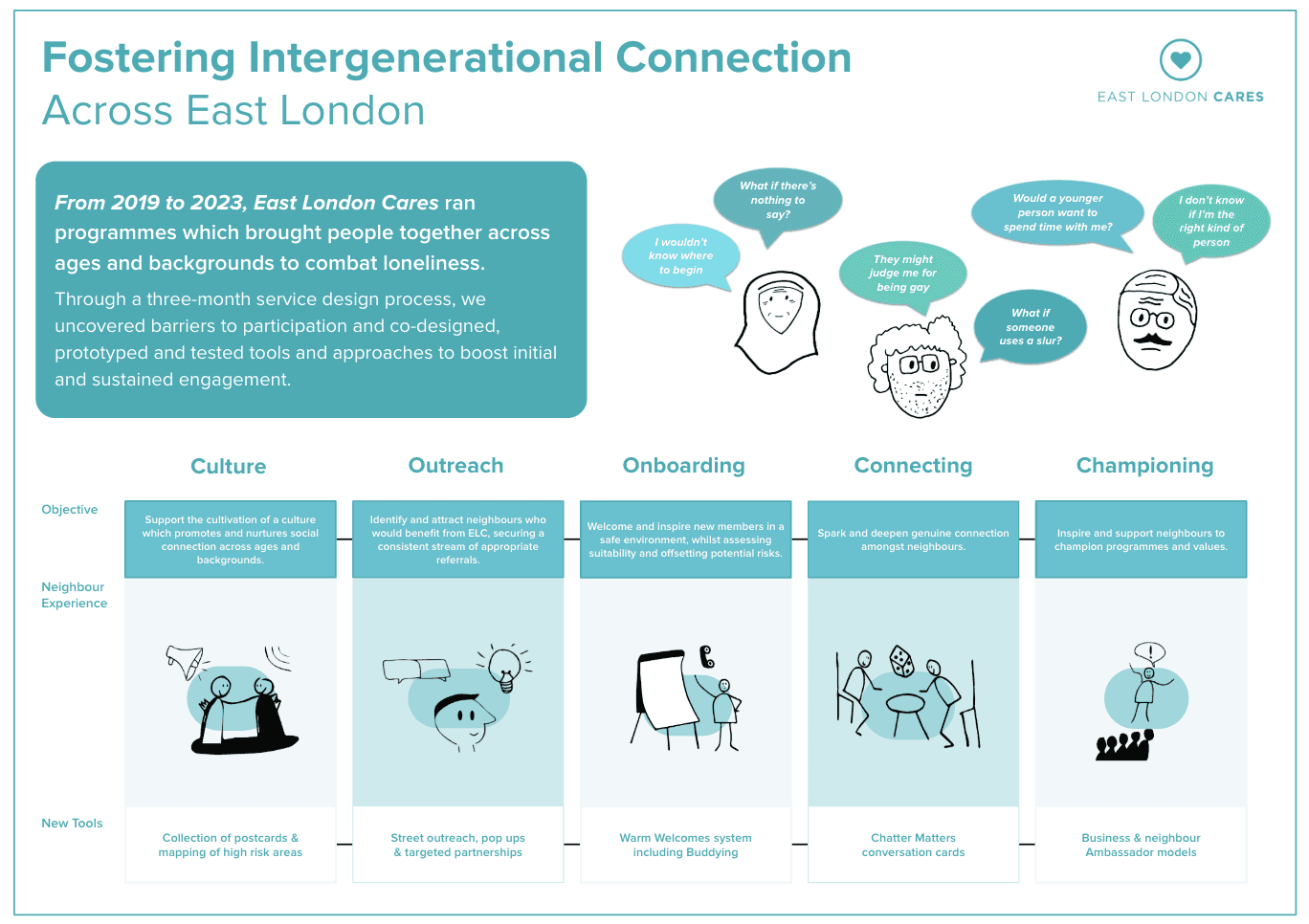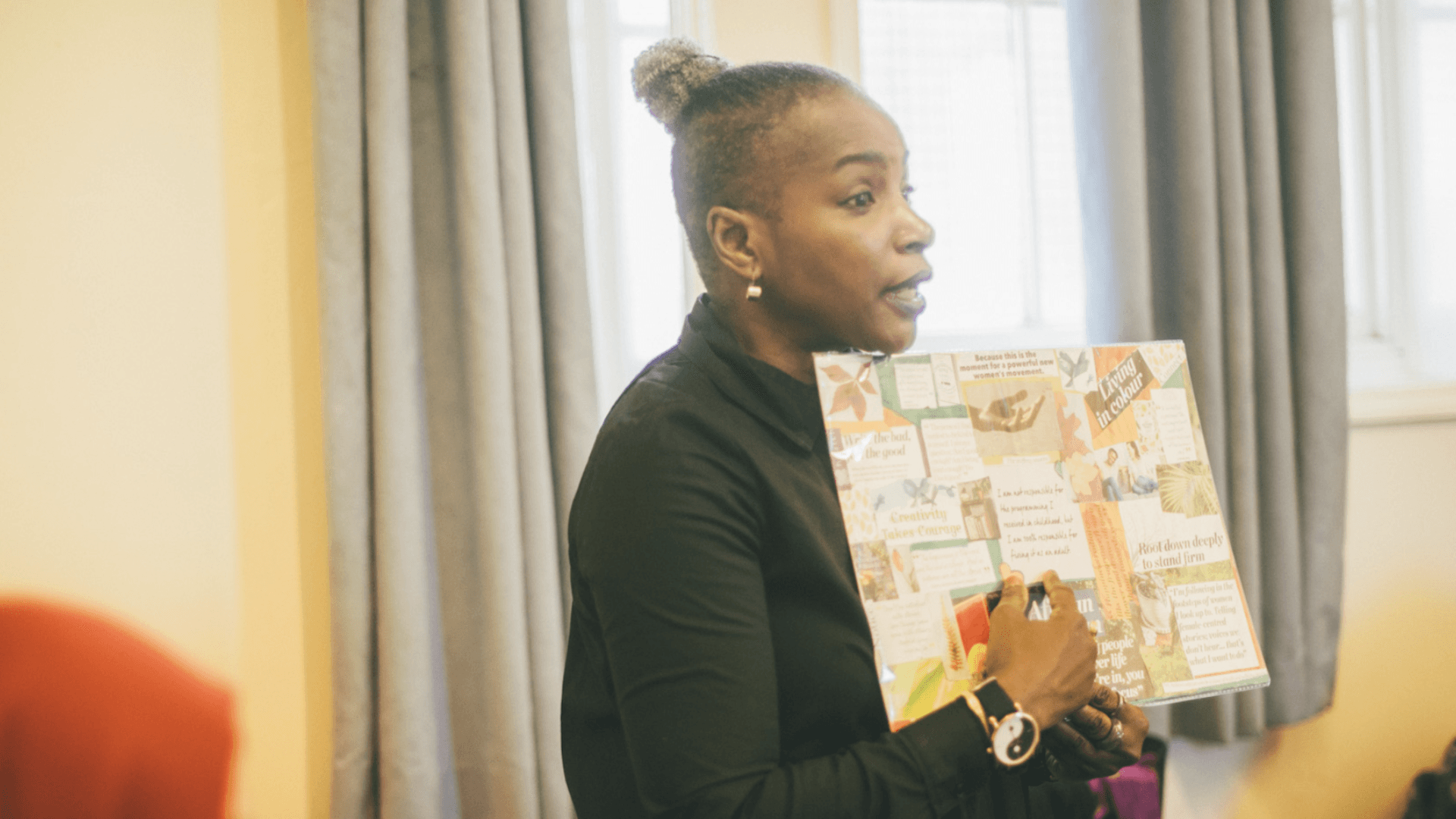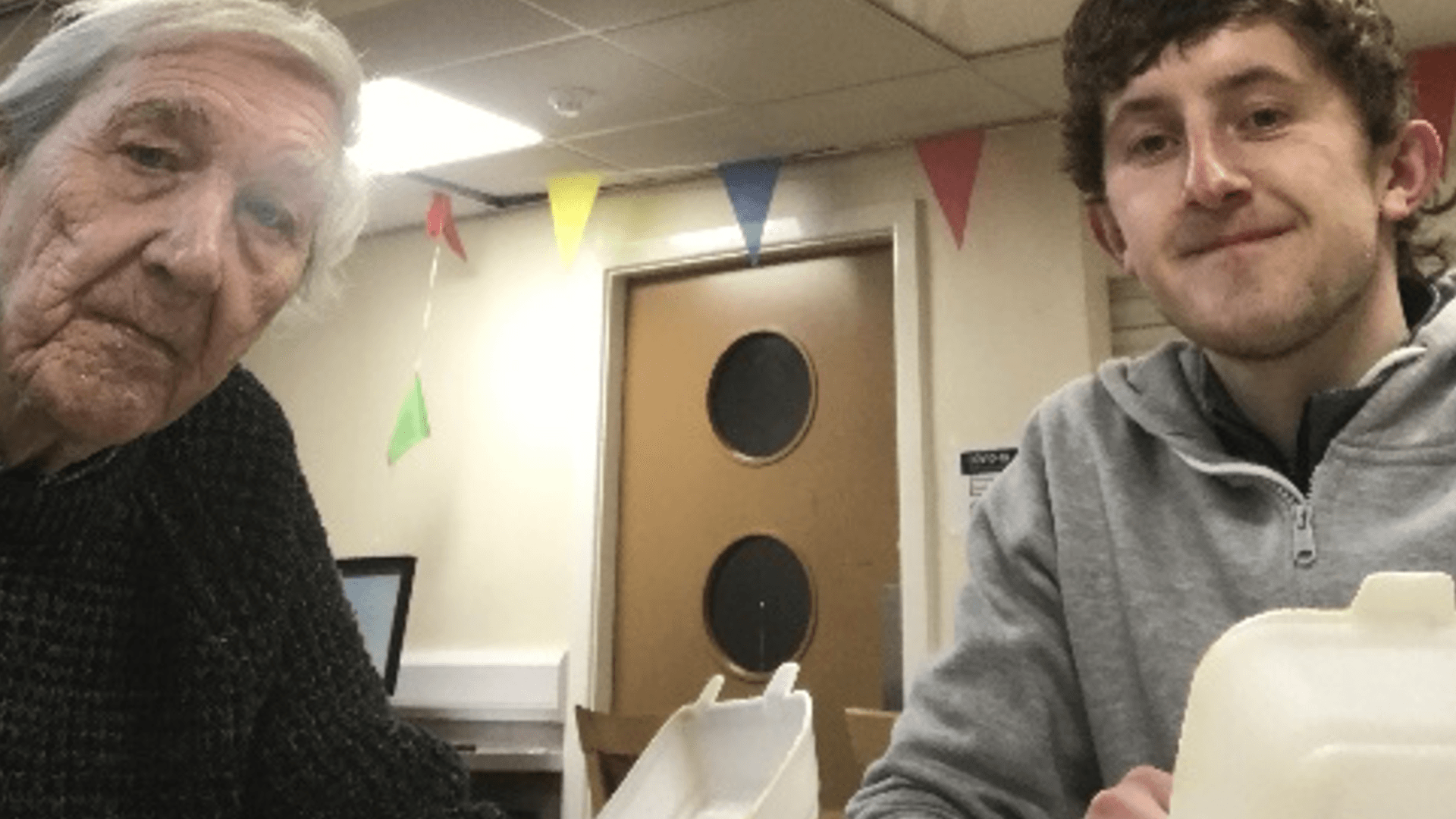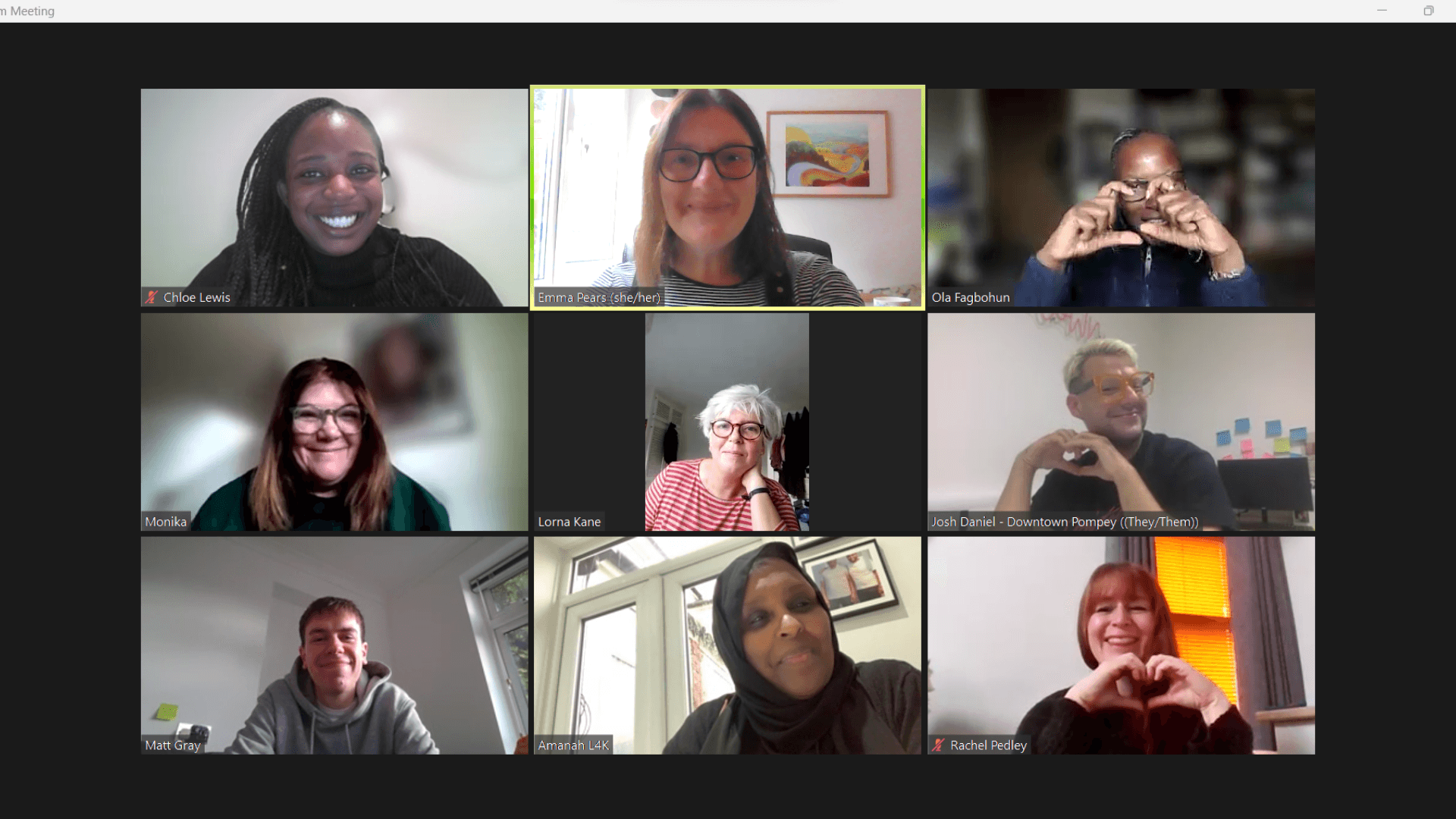
Continuing to share learning and the vitality of intergenerational connection
Posted by The Cares Family on 22nd November 2024
Please note: this post is 12 months old and The Cares Family is no longer operational. This post is shared for information only

Throughout The Cares Family's operational life, one of our five precious values was learning. From the final blogpost we published before our closure, which featured an evaluation of how Manchester Cares' intergenerational social clubs were building connection; to analyses of how we pivoted in the first month of the pandemic; to reviews of a decade of scaling; to three independent evaluations of our model; indeed, right back to our first blogpost committing to launching in beta and iterating in public – our approach was always to share how we were evolving in the hope that others might seek to take steps towards nurturing intergenerational connection too.
That's why, although The Cares Family is no longer operational, we're happy to share the work of Innovation Consultant and Service Designer Savannah Fishel, who in 2023 worked with East London Cares to review how more intergenerational connection could be fostered in east London. More than 12 months after the completion of Savannah's work, she has now published a blog on the East London Cares legacy website introducing her 53-page storybook and a new Chatter Matters deck of conversation cards – accessible and useable by all those who want to help bring older and younger people together where they are.
The learnings from this study are fascinating. They include some of the reasons why many people are not engaging in intergenerational relationships organically, and why some may have been initially nervous to join with a community like East London Cares, such as:
- Visibility and stigma: Many people haven’t heard stories of non-familial intergenerational connection so the mutual benefit of such relationships often isn’t known. There’s also a stigma issue, with many people – despite desiring more connection – feeling that they do not fit into a preconceived mould of a ‘lonely’ person.
- Feeling safe: Some people are concerned they may be judged or discriminated against by those of a different generation. Both younger and older people worry about not feeling psychologically safe in an interaction with someone who's lived a different life experience to them.
- Bridging differences: Some people are interested in building cross-generational relationships but feel there are inherent challenges of socialising across age groups, such as a prominent fear of awkwardness or prolonged silences.
That's why communities like East London Cares, B:Friend, Good Gym, and others including those who were part of The Cares Family's Ripple Effect project to spread intergenerational connection across the UK are so important – because they tackle stereotypes common amongst older and younger people about different generations, they help people feel safe and seen, and they help bridge differences, not just at the local level, but in the stories we tell about one another at the national level too.
To help more people across the country and around the world to adopt this approach to reducing loneliness by building intergenerational friendships, Savannah has some key tips:
- Cultivate a culture which promotes the mutual benefit of intergenerational connection and inspires people to engage.
- Support new joiners to feel safe and supported.
- Help neighbours to spark genuine connection by sharing time, laughter and new experiences.
The whole of Savannah's storybook is worth reading and re-reading for people in social change, programme design and community-building, but perhaps just as importantly, the Chatter Matters deck contains 66 cards to help prompt conversations between older and younger neighbours, split into three difficulty levels depending on those friends' level of familiarity and growing trust – because it's this familiarity and trust that will help us build connection in a disconnected and increasingly polarised age.
It's this type of meaningful learning and practical tool-and-tip-sharing that, despite The Cares Family's closure, this website can continue to be useful for – to go on spreading over a decade's learning in new ways, to encourage intergenerational connection anew, and to try to help people feel part of a changing world rather than left behind by it. Thank you, Savannah, for the work you did with older and younger neighbours, for the East London Cares community, and in service of intergenerational community – and thank you for how you are building on this legacy with your inspiring Churchill Fellowship.


